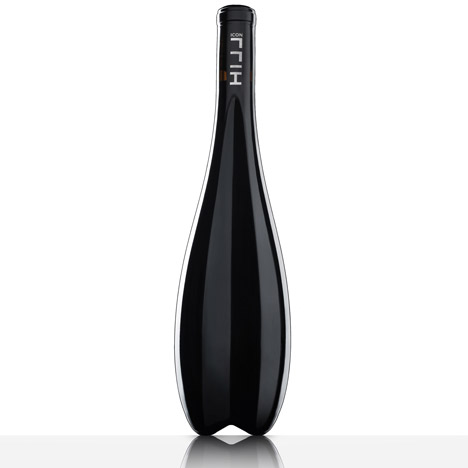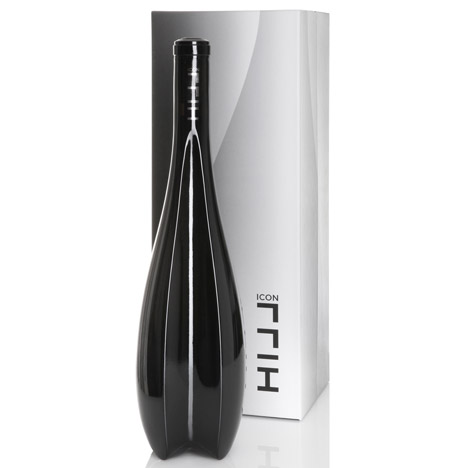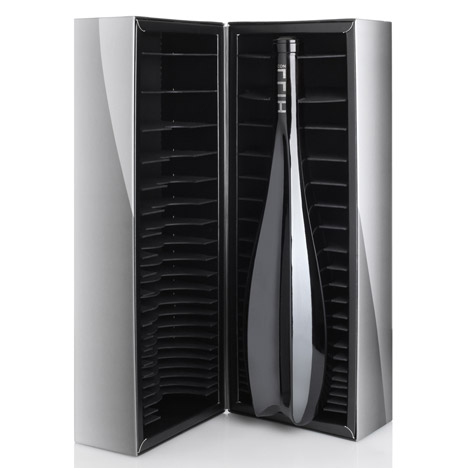
Wine bottle by Zaha Hadid for Leo Hillinger
Product news: London architect Zaha Hadid has designed a curvaceous wine bottle for Austrian winemaker Leo Hillinger.
Zaha Hadid created the limited-edition design for Leo Hillinger's Icon Hill 2009 vintage red wine, of which 999 bottles were made.
One side has a concave indentation with the same curve as the back of the bottle so a row of them can interlock. A dimple in the base allows sediment to gather and provides a thumb hold for pouring.

"The elongated volume of the bottle has been derived from the profile of liquid droplets," said Hadid. "A continuous spatial curve was then projected onto the bottle's surface, defining areas for the concave indentation and suggesting the waves created when droplets break a liquid's surface."
The shape was created using NURB-based software, then the glassware was formed in cast-iron moulds.
It comes in a box with the form of the bottle cut from striations, a common feature of Hadid's designs. See our feature on striations in architecture and design here.

Other designs for alcohol we've featured include packaging for coffee-flavoured beer designed by Nendo and a set of seven wine glasses inspired by the seven deadly sins.
See more architecture and design by Zaha Hadid »
See more design for drinking »
Icon Hill is an exceptional red wine cuvee of 2009 vintage, produced by the renowned Austrian winemaker Leo Hillinger in a limited edition of 999 bottles that have been designed by Zaha Hadid Architects to reflect the wine’s bold and distinctive character.
The elongated volume of the bottle has been derived from the profile of liquid droplets. A continuous spatial curve was then projected onto the bottle’s surface, defining areas for the concave indentation and suggesting the waves created when droplets break a liquid's surface.
The concave indentation and the bottle's surface have the same curvature, enabling a set of bottles to interlock and be perceived as singular whole. A smaller indent and volume has been created at the base of the bottle for correct handling and to accommodate any tartrates.
To achieve the precision and accuracy required for production, the shape of the bottle was created using NURB-based CAD software. The bottle manufacturer directly implemented this 3D master geometry to produce the cast iron moulds for the glass forming process.